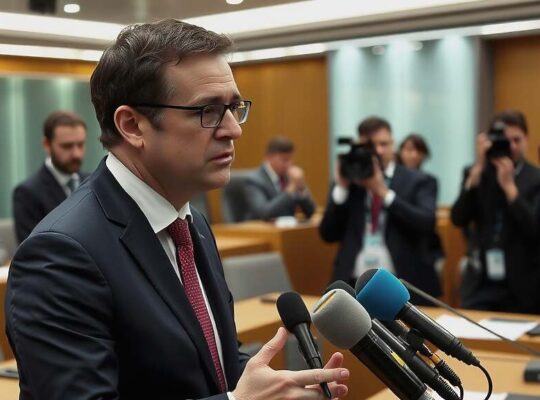A fundamental deadlock persists between the German federal government and state governments regarding the implementation of a mechanism to compensate for the financial repercussions of legislation, according to findings detailed in a recently released report from a joint federal-state working group. The disagreement, highlighted by “Handelsblatt”, underscores a deepening political tension over fiscal responsibility and the distribution of costs associated with new laws.
The core issue revolves around the principle of “who orders, who pays” or what experts refer to as “causal nexus” where the entity enacting legislation bears responsibility for the financial burden it places on other levels of government, particularly the states (Länder) and municipalities. The current absence of a clear compensation mechanism is creating uncertainty and hindering effective governance.
The state governments are advocating for a more concrete framework. Their proposal, documented in the report, suggests that the federal government should commit to providing compensation for legislation that incurs costs exceeding 250 million euros for states and 100 million euros annually for municipalities within the first three years of its implementation. This compensation would be facilitated through a higher share of value-added tax (VAT) revenue allocated to the Länder. Crucially, they are also seeking compensation for instances of tax cuts initiated by the federal government, a point of significant contention.
The federal government, however, rejects this more prescriptive model. Instead, it has proposed a periodic review of the entire financial landscape, encompassing all levels of government – federal, state and municipal – with subsequent adjustments to the VAT distribution intended to achieve a broadly “fair burden distribution”. This approach avoids linking compensation to specific pieces of legislation, opting instead for a more holistic and, critics argue, less transparent method of fiscal adjustment.
The divergence in perspectives exposes an underlying power struggle between the federal government, eager to maintain control over budgetary decisions and the states, increasingly frustrated by bearing the financial consequences of federal laws without adequate redress. The absence of a consensus risks escalating intergovernmental tensions and potentially undermining the ability of the states to effectively implement policies and deliver essential public services. Analysts suggest that this deadlock highlights a broader debate about the balance of power in German federalism and the long-term sustainability of the current fiscal arrangements. Further negotiations are expected, but a swift resolution appears unlikely, leaving the states in a state of budgetary anxiety.












